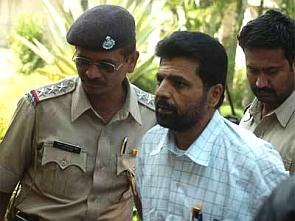
Paving the way for his execution, the Supreme Court on Thursday rejected the review plea of Yakub Abdul Razak Memon, sole death row convict and a co-conspirator of fugitive Dawood Ibrahim in the 1993 Mumbai serial blasts case.
“We have gone through the judgment sought to be reviewed and we have considered the arguments advanced on both sides. As requested, we have also gone through the judgment of the trial court, in order to appreciate the contention on conviction and sentence. We find that all the arguments advanced by the review petitioner have been considered in detail in the judgment which is sought to be reviewed. Hence, we do not find any error apparent on the face of record or any other ground so as to warrant interference in exercise of our review jurisdiction. The review petition is hence dismissed,” a bench headed by Justice A R Dave said, paving way for Memon's execution.
To avoid gallows, Memon has now very few options left. As the last legal recourse, he may file a curative plea in the apex court against the dismissal of his review petition and can also seek the Presidential clemency.
The three-judge bench, also comprising justices J Chelameswar and Kurian Joseph, had heard the plea of Memon in an open court in pursuance of a Constitution bench verdict that the practice of deciding review pleas in chambers be done away with, in cases where death penalty has been awarded.
Earlier, the apex court, on June 2, last year, had stayed the execution of Memon and referred his plea to a Constitution bench as to whether review petitions in death penalty cases be heard in an open court or in chambers.
Memon, in his plea, had claimed he was suffering from schizophrenia since 1996 and remained behind the bars for nearly 20 years. He had sought commutation of death penalty contending that a convict cannot be awarded life term and the extreme penalty simultaneously for the same offence.
Memon had sought review of the March 21, 2013, verdict of the apex court upholding his death penalty in the case relating to 13 coordinated bomb blasts in Mumbai, killing 350 persons and injuring 1,200 others on the afternoon March 12, 1993.
Memon's review plea had said that he “has been continuously in custody since 5/8/1994 and was never released on bail. He has already undergone almost 20 years of detention and executing the death sentence on him at this belated stage after a time lag of 20 years would amount to subjecting him to both life imprisonment as well as death sentence.”
The apex court had on March 21, 2013, upheld the death sentence of Memon and commuted the death penalty awarded by a special TADA court to 10 others, who had planted RDX explosives-laden vehicles at various places in Mumbai, to life term by distinguishing their roles from that of Memon.
In its verdict, the court had dealt with Memon's role in the serial blasts and said he was the “driving force” and a “mastermind” behind the blasts that rocked 12 crowded areas in Mumbai leaving almost 350 dead and over 1,200 injured.
The court had also said the 10 other convicts on death row were people of lower strata in the society without any regular jobs and had fallen prey to the “hidden motives” of the main conspirators.
Bollywood actor Sanjay Dutt was also directed to serve the remaining three-and-a-half years of his five-year jail term for possessing illegal arms.
Besides commuting the death sentence of 10 convicts to life term, the court had also awarded rigorous life imprisonment to 25 others, out of which, four were earlier acquitted by the TADA court.
The 10 convicts whose death sentence was commuted to life term were -- Abdul Gani Ismail Turk, Parvez Nazir Ahmed Shaikh, Mushtaq Tarani, Asghar Mukadam, Shahnawaz Qureshi, Shoaib Ghansar, Firoze Amani Malki, Zakir Hussain, Abdul Akhtar Khan and Farooq Pawale.
The TADA court had in November 2006 convicted 100 out of 123 accused in the case. While 12 were awarded death penalty, 20 others got the life term and the remaining 68 got varying jail terms under the provisions of the anti-terror law, IPC and other relevant penal laws.





